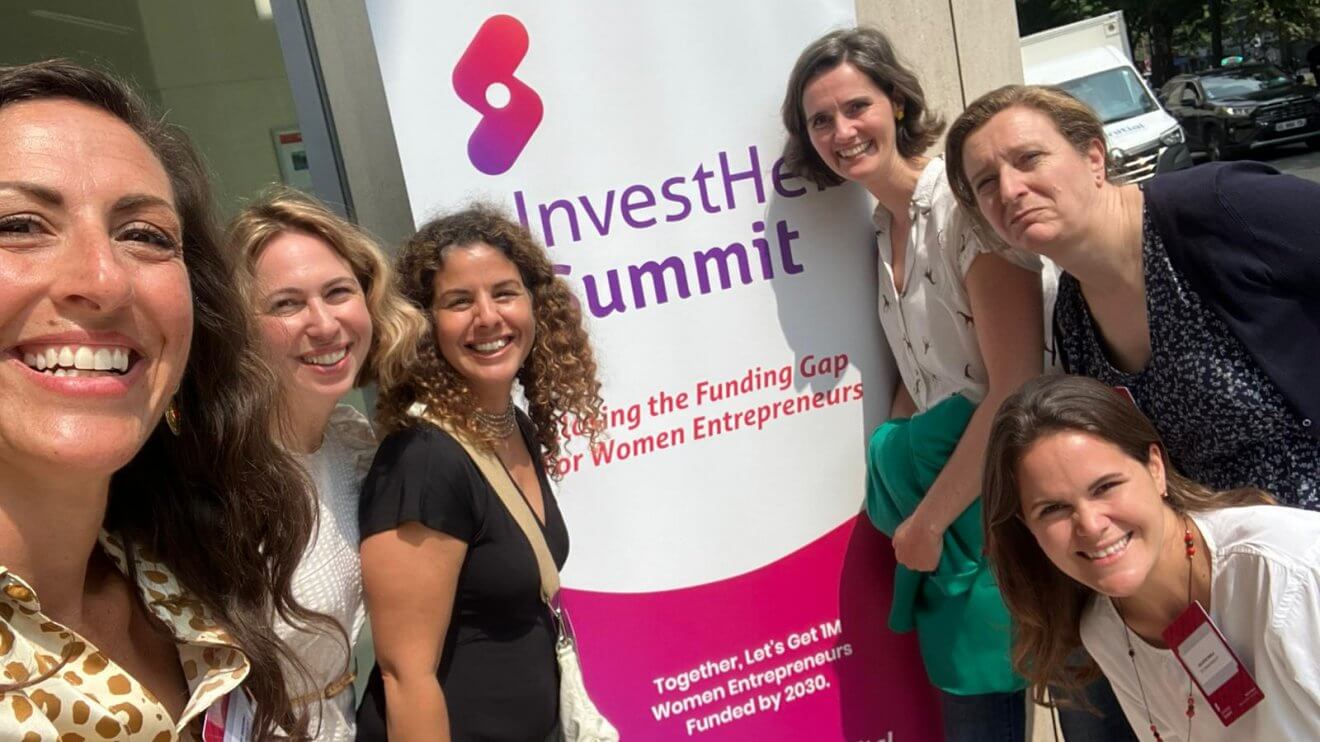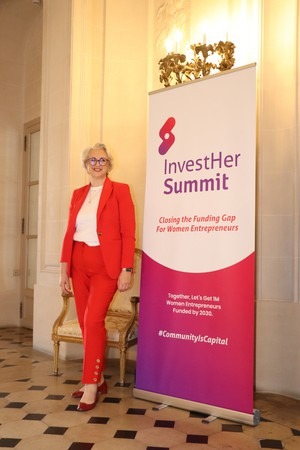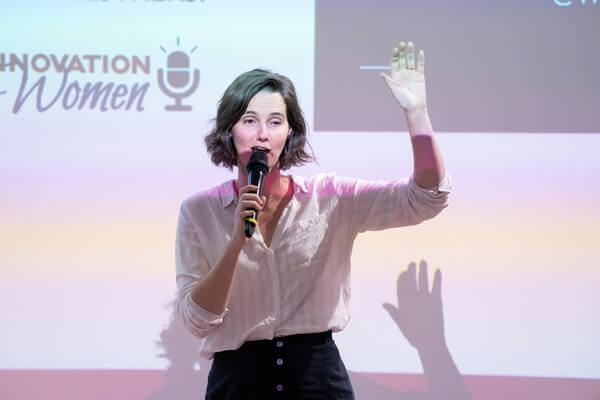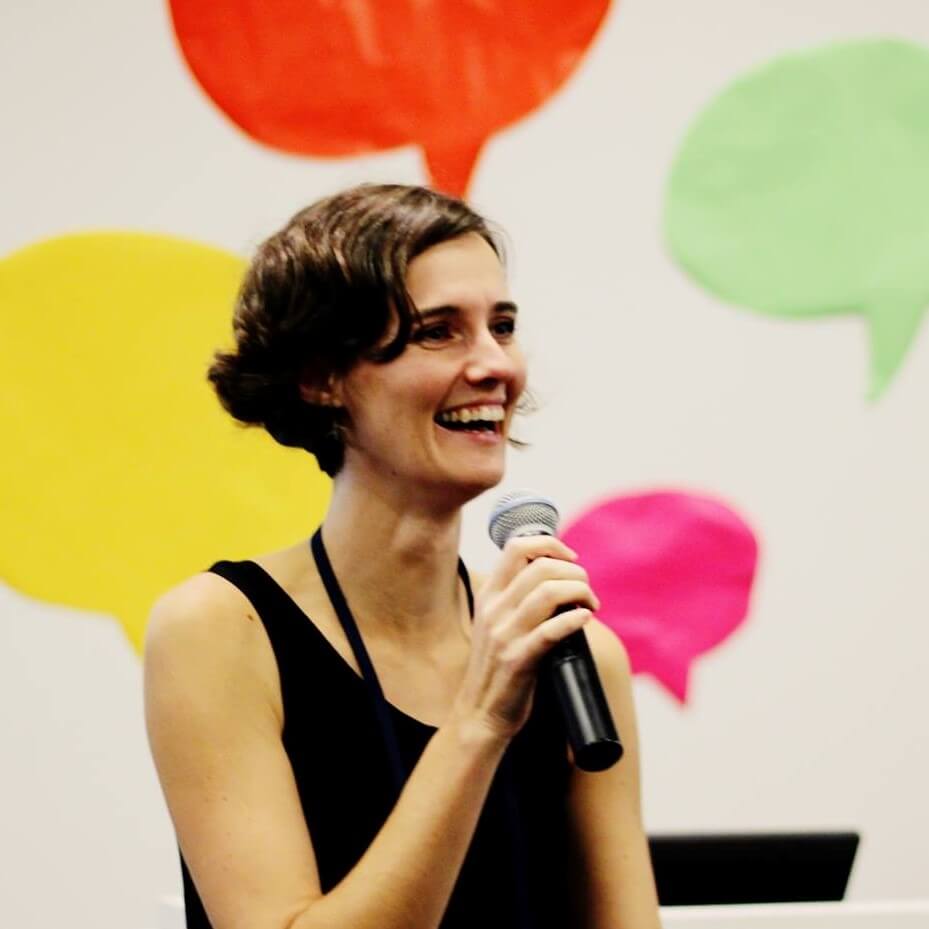Sometimes you have to draw a line in the sand to know where to start. And that’s just what Anne Ravanona, founder and CEO of Global InvestHer and member of the EU delegation to W20, did back in 2020.
“I was meeting Emmanuel Macron, the president of France, as part of a delegation preparing for the Generation Equality Forum,” Ravanona said. The forum was launching a 5-year action journey to achieve irreversible progress towards gender equality with $40 billion in financial commitments from governments. But once in the room, she realized she was the only person focused on women’s economic empowerment.
She said, “If you’re meeting the president you better have a big and audacious goal. So I said to him: ‘what if we got one million female founders funded by 2030?’. Once I had this outlined, I knew we had to kick it off with a summit that would bring people who truly care and are serious about solving this issue.”
Creating the Global InvestHer Summit
That is how this year’s inaugural Global InvestHer Summit was born. Ravanona and her team designed the summit with great intention, seeking to fill the room with experts attacking this issue and solving it from all angles. “This was about getting all stakeholders in the room to understand and collaborate with corporate initiatives, investment experts, government policies as well as the UN or EU agencies and emerging funders and founders,” Ravanona said. “Some people know about VC—but not as many know about government contracts, procurements and other funding sources or initiatives being put on by governments to help address the inequities.”
She set about putting together a two-day summit that would address this and many other issues. “Women need to be part of wealth creation and generation, not just beneficiaries. I see women as agents of economic change globally,” said Ravanona. Many speakers echoed this at the event, including keynote speaker and Portfolia founder Trish Costello, whose mission is to make it easier for women to become angel investors and write checks. “If women want specific companies in the world that address their needs, the only way to do that is for women to become investors,” Costello said during her keynote.
SoGal Ventures VP Tracey Amara Thompson also amplified that message while speaking about emerging fund managers. “If we claim to be feminists and express a desire to invest in women, we must do the work to invest in all women. We must strive to solve for the most marginalized because when we solve for them, we solve for the world.”
Making change for women
Though not all women can become investors, it is true that, in many places, women are the ones making financial decisions for their families and communities. In the U.S. alone, women hold close to 80 percent of the spending power, which begs the questions: where and how can this be deployed to support other women? Where can it be used to put pressure and dictate policies that benefit all women? These were all topics representatives from leading organizations like Women Who Invest, the UN Women’s Entrepreneurship Accelerator, the Women Entrepreneurship Finance Facility (We-Fi) at The World Bank, WEConnect International, European Institute of Innovation & Technology (EIT), or The Organization for Economic Cooperation and Development (OECD) and many others were asking.
“That’s what made this summit so special,” said Julianne Zimmerman, an investor focused on systems change. “There were so many high-profile people working with leading organizations in the room, and because it was an intimate setting speakers weren’t just in and out but participated in discussions and were approachable to everyone there. It really felt like new community being formed. We’ve had a more or less homogeneous old boys network forever; it’s about time we had a diverse old girls network.”
As the movement grows, so do the commitments to action, with Ravanona announcing that 16 organizations made 44 commitments at the Global InvestHer Summit, including the World Bank, UNESCO, EY and DELL pledging to help one million women get funded by 2030.
Zimmerman observed: “Time will tell, of course, but based on the conversations I’ve had over these two days, many summit participants are going to be moving more money.”
Beyond the event
To ensure lasting impact and create a collective movement, the Global InvestHer Summit’s focus also needed to go beyond money to include policy changes. Virginia Littlejohn, a long-time advocate and lobbyist for policies that promote gender equity at the G20, UN and World Bank, asked summit-goers to share their policy priorities with her to ensure everyone from founder to investor to country delegate was being heard.
So what comes next? You can get involved now by making a public commitment to further the movement to fund one million women or buying a support ticket to fund the change. Ravanona and the team are already thinking about next year’s summit, which promises to cast a wider net globally to engage even more people of all genders to support this initiative. These are big and audacious goals, to achieve them, all of us need to join in. Let us all draw that line in the sand.
It’s up to all of us to #FUNDTHECHANGE.
About Marie Meslin
Marie Meslin has led non-profits and worked in the entrepreneurship and international innovation industry for over 15 years. A bit of a Swiss army knife, Meslin has a background in women’s rights, innovation, non-profit leadership, startup education, community building, social justice and documentary filmmaking. Most recently, as the Executive Director for The Capital Network, she pivoted this 25+ year old 501(c)(3) by pioneering programming and structures for female founders to raise capital and create more equity and access in a notoriously inequitable space. This program—The Fellowship for Female Founders—was created in 2016 and has supported over 90 female founders, 50 percent of whom are people of color, with 43 percent of them then raising over $80 million.
Discover how The Capital Network’s Demo Day Empowered Female Founders in our related article.










[…] power dynamics—not just through legislation like H1921, but also through global initiatives. How to Get 1 Million Women Funded by 2030: the Global InvestHer Summit shows the push for equity in […]